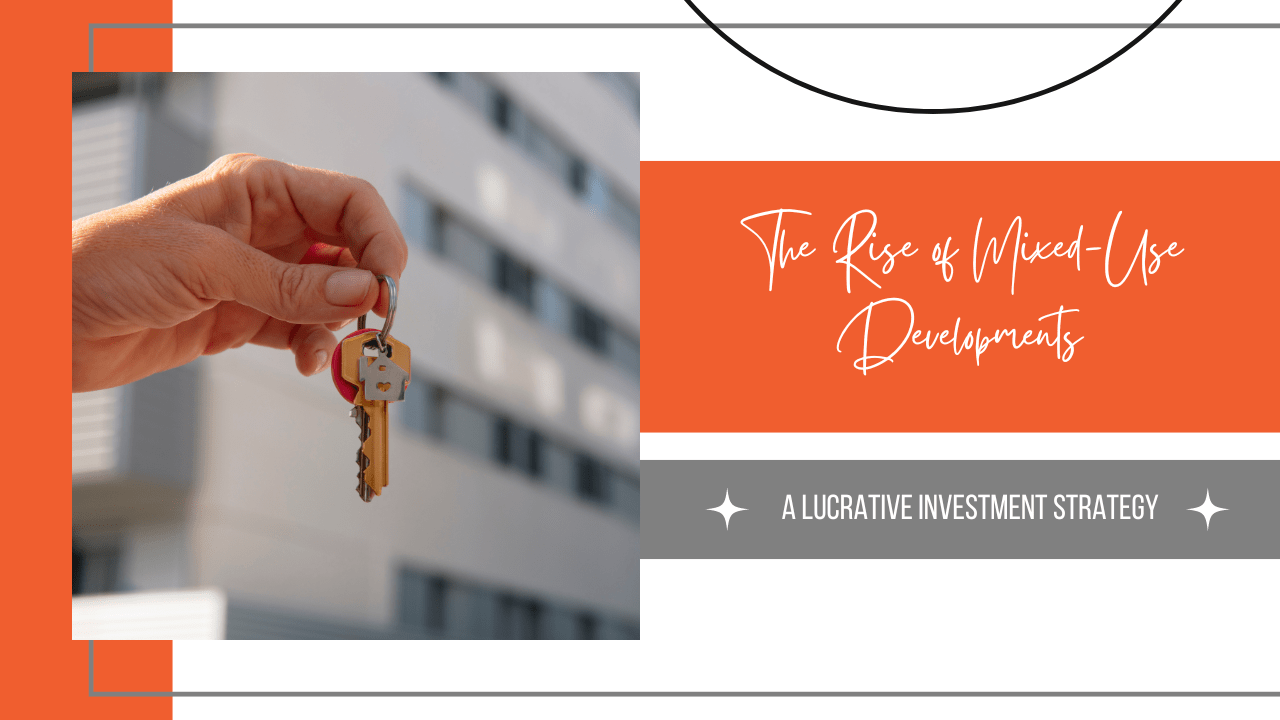Mixed use zoning in Portland means that areas and neighborhoods are zoned for both residential and commercial use. This is a trend that’s not unique to Portland; cities across the country are adopting spaces that accommodate residential homes such as apartment, condos, and single-family residents within a region that also has shops, restaurants, entertainment, and even offices and medical establishments. This is what makes it mixed-use: there’s all sorts of properties.
A lot of the new construction projects taking place in Portland are mixed-use developments. The creation of these new neighborhoods is expected to provide more housing inventory to a city where demand outpaces supply. They’ll also contribute to the local economy, which has been growing.
Like a lot of west coast cities, Portland is known for its innovation and adaptability. It captures the essence of what it’s like to live in a modern city provides both comfort and conveniences as well as an urban, metropolitan vibe. The city has become a hotspot for mixed-use developments, and it’s managed to create some pretty harmonious settings.
For real estate investors, this growing trend presents an opportunity to diversify portfolios and capitalize on a growing energy towards blending residential, commercial, and even industrial elements into city planning and long-term landscapes.
Let’s take a look at why mixed-use developments in Portland are seeing an upswing and how they have become a lucrative investment strategy for real estate investors who are willing to make the right moves at the right time.
Understanding Mixed-Use Developments
Mixed-use developments are designed to incorporate a variety of uses, such as housing, office space, retail, and entertainment facilities within a single project. These hybrid spaces aim to create self-sustaining ecosystems where residents can live, work, and enjoy amenities and activities that match their lifestyle. Portland's embrace of mixed-use developments reflects a broader shift towards more sustainable and pedestrian-friendly urban planning.
It makes sense in Portland because the city’s urban growth boundary and land-use planning policies have fostered a development culture that prioritizes limited space usage and minimizes urban sprawl. With the city's progressive stance on environmental conservation and community-oriented development, mixed-use projects are a natural fit. These bundled real estate offerings not only satisfy the city's planning principles but also cater to a local market that values convenience, efficiency, and a high quality of life.
Challenges Posed by Mixed-Use Developments
We’re going to talk about why mixed-use developments are such a lucrative investment model for real estate investors looking to diversify or scale their portfolios. But, that doesn’t mean that this type of real estate is not without its barriers and complexities.
For example, high interest rates are still a bit of an impediment for a lot of investors. Accessing the capital that’s needed for these high-dollar projects is more expensive, now. There’s also been an increase in material costs. Labor and supplies are more expensive. And, local challenges in Portland can sometimes create a bit of uncertainty about when many of those mixed-use projects on the horizon will actually be built.
Developers and investors will have to navigate security issues and access. There’s likely to be more noise, traffic, and pollution in mixed-use developments simply because of all the things happening in one place. Parking will need solutions, as will capacity when thinking about local schools and public services.
The Investment Appeal
Challenges aside (all of these problems can be solved, especially when they’re anticipated), mixed-use developments are good for the local rental market and for your potential as an investor for the following reasons:
Portland can leverage the market stability and diversity mixed-use developments provide. Portland's mixed-use developments offer a cushion against market volatility. By spreading risk across multiple types of real estate within the same development—from premium residences to retail and office spaces—investors gain a hedge against economic fluctuations that might impact a single-use property. This will reduce the risk of investments and balance any market dips in one area or another.
Consistent cash flow for owners across the board. With streams of income from different sectors, mixed-use properties ensure more constant and recurring cash flow. Retail and commercial leases typically run longer than residential tenures, providing stability and a solid financial backbone for the entire development. While you may have a lot of residential turnover, those shops and stores will likely stay where they are for the long term.
Locations are serving as town squares and creating a sense of community. You don’t have to be a psychology expert to know that a lot of people are suffering from loneliness and feeling like they don’t have much of a community. The success of these mixed-use developments often lies in their location. Many of Portland's mixed-use projects are strategically situated in thriving neighborhoods with high foot traffic and bustling economic activities, boosting their valuation and appeal. They’ll attract all the attention that they should, and the people living in these communities can enjoy the sense of community that’s provided by walking to their favorite coffee shop or meeting friends at a neighborhood restaurant.
Making Mixed-Use Developments Sustainable Investments
Sustainability has become a significant factor in investment decisions. Portland's mixed-use developments often incorporate green building principles, which make them particularly attractive for investors who are environmentally conscious or betting on the fact that tenants and businesses will increasingly favor eco-friendly spaces.
It’s a bet that’s pretty safe to make. When developers can focus on minimizing the environmental impact of these developments, they’ll be sure to garner more local support for the development, and they’ll also have an easier time attracting tenants (residential and commercial) who care about the planet and the footprint they’re leaving behind.
Understand the Mixed-Use Market
If you’re a real estate investor who is looking to leverage the potential of mixed-use developments, you’ll want to spend some time performing diligent market research. Work closely with experienced developers, and ensure proper due diligence for each project component.
Networking within real estate circles and staying abreast of Portland's development pipeline can unearth promising opportunities.
Here are some of the current mixed-use projects in Portland that we are excited to see coming to market.
Slabtown
The Slabtown neighborhood is one of the Portland’s trendiest. There’s a good mix of residential apartments, restaurants, shopping, and plenty of places to walk along Northwest 21st and 23rd Avenues. There’s been a steady bit of new construction, and this year should see 392 apartments and more than 11,500 square feet of retail space once the mixed-use Slabtown Square and Freewell projects are complete.
Pop Blocks
Look for construction to speed up on the Pop Blocks project, which is a mixed-use development located at the former Pepsi warehouse along Sandy Boulevard in Northeast Portland. The first phase of the 4.7-acre mixed-use development is almost done, and has resulted in the construction of a 219-unit apartment building. There are also plans to renovate the 60-year-old bowstring-truss bottling plant into a public pavilion with retail and commercial space. An additional 160 apartments are expected to be developed over the next two years.
Willamette Tower
Willamette Tower is a high rise (23 stories!) on Portland’s South Waterfront, and the finished project will result in 343 apartments and 3,800 square feet of retail space. The development is a part of a four-block plan that includes a pair of 23-story high rises and a trio of five-to-six-story buildings. Currently, three of the buildings have been constructed, and the city is reviewing the building permit for the completion of the second half. Once complete, there will be approximately 1,200 homes constructed.
Several mixed-use developments that incorporate affordable housing are also underway. These include Hollywood HUB, which is a 12-story building that will have 224 rental units available for those who need affordable housing (priced at 30-60% percent of the area median income). Julia West is another project that’s slated to start this year and will include some affordable housing units in a 12-story building. It’s on the West end, near Cheryl’s on 12th and Jake’s Famous Crawfish. Senior housing will also be offered in this mixed-use development.
For real estate investors looking towards the future and willing to navigate the intricacies, mixed-use developments in Portland offer a dynamic investment proposition that aligns with future urban living patterns.
Through smart planning and execution, real estate investors can not only reap the rewards of financial returns but also contribute to the city's vibrant and sustainable growth. There are current projects underway and others being negotiated now. If you’re looking for a way to get into this type of investment, let’s talk.
In the changing real estate market, huge demand for rentals, and logistics that keep us committed to Portland’s urban growth boundaries, mixed-use developments stand out as a unique and productive way to continue pivoting in this competitive real estate investment.
 We would love to take a look at your investment goals, talk through some of the opportunities that might be available to you, and even discuss some of the benefits of mixed-use developments for you. Contact us at PropM, Inc.
We would love to take a look at your investment goals, talk through some of the opportunities that might be available to you, and even discuss some of the benefits of mixed-use developments for you. Contact us at PropM, Inc.


